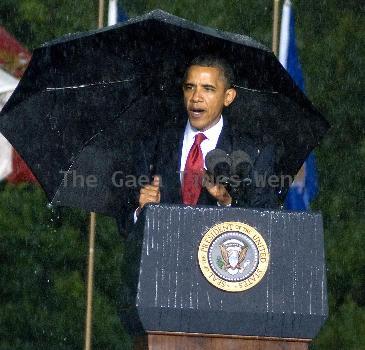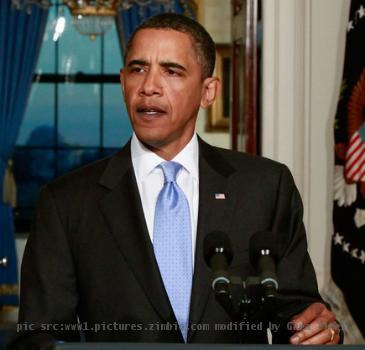AP answers your questions on the news, from McChrystal’s fate to disposing of oil on the Gulf
By APFriday, July 9, 2010
Ask AP: McChrystal’s fate, disposing of Gulf oil
What happens to all the oil that workers have been collecting from beaches since the Gulf oil spill?
That’s one of the questions being answered in this edition of “Ask AP,” a weekly Q&A column where AP journalists respond to readers’ questions about the news.
If you have your own news-related question that you’d like to see answered by an AP reporter or editor, send it to newsquestions@ap.org, with “Ask AP” in the subject line. And please include your full name and hometown so they can be published with your question.
You can also tweet your questions to AP, using the AskAP hashtag.
Ask AP can also be found on AP Mobile, a multimedia news service available on Internet-enabled cell phones. Go to www.apnews.com/ to learn more.
What’s next for McChrystal? Is he now retired? A drop in rank from general to lieutenant general?
Joseph Skelly
South Dakota
The week after he was relieved of command for remarks he and his aides made about Obama administration officials, Gen. Stanley McChrystal informed the Army that he will retire from military service. His retirement will be effective later this year.
He will keep his current rank as a four-star general, because the administration is waiving an Army rule that requires generals to serve three years in their highest rank to keep that rank in retirement. The difference for McChrystal is more than $20,000 in additional retirement pay, in addition to the prestige of the four-star rank.
McChrystal returned to his military-issued house on Fort McNair, in Washington, immediately after his Oval Office showdown with President Barack Obama. Some of his staff who had traveled with him from Afghanistan for the meeting flew back there without him a few days later.
Anne Gearan
AP National Security Correspondent
Washington
Thousands (or millions) of tar balls and oil patches are being removed from Gulf of Mexico beaches. How are these pieces of oil disposed of after they are collected?
Robert Lamberson
Canandaigua, N.Y.
Crude oil and tar balls from the Gulf oil spill wash in sporadically on beaches in waves that sometimes turn the surf the color of chocolate milk. The oil collects on beaches in long, brown or burnt-orange lines that can stretch for miles and can reach a depth of several inches.
Cleanup workers typically use shovels to pick up the deposits and place the debris in plastic bags, which are sealed with duct tape. Also, workers are using sand-sifting machines that scoop up oil more quickly and in larger amounts.
The refuse typically is placed in lined waste bins and taken to one of several landfills in the region. The Environmental Protection Agency hasn’t classified the oily waste as hazardous material, so it can be put in the same dumps that accept common household garbage.
Some of the waste-handling work has been haphazard, with bin liners coming apart and some material being placed in unlined containers. Contractors like Waste Management Inc., a major BP PLC contractor and the nation’s largest trash hauler, say they are trying to do better.
Jay Reeves
Associated Press Writer
Orange Beach, Ala.
Have questions of your own? Send them to newsquestions@ap.org.
Tags: Ask-ap, Barack Obama, Coastlines And Beaches, Higher Education, Journalism



